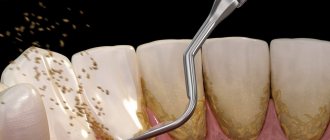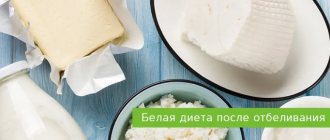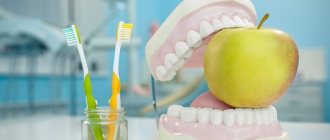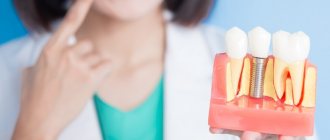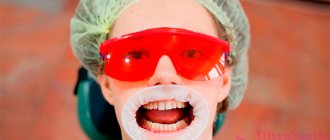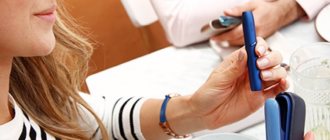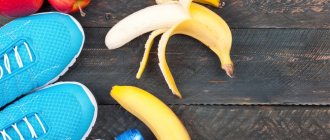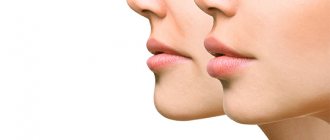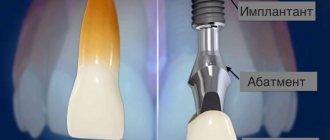What cannot be done and what is not allowed to eat after each ultrasonic teeth cleaning, how long after can one drink coffee, what recommendations do doctors give to patients who have undergone other hygiene procedures? Many people mistakenly believe that once you step outside the dental office, you can sparkle with a snow-white smile and at the same time eat whatever you want. In fact, it is important to maintain a certain time interval during which hard and soft tissues must fully recover after exposure to ultrasound.
There are also general care recommendations. Following these rules will ensure that the effect lasts for a long time.
How often can you have your teeth cleaned by the dentist?
It is better to visit the clinic once every six months. This is enough to prevent dental diseases and eliminate accumulated deposits.
The procedure itself does not last long, about half an hour or a little more. The doctor first assesses the condition of the oral cavity, and then gives an opinion on the possibility or impossibility of professional treatment. If necessary, filling is performed, implants, prostheses and other orthopedic structures are installed. Thus, if there is a pathological process in the mouth, it is first of all important to get rid of it, and only then begin to remove plaque and whiten the units.
What else
Recommendations after teeth whitening:
- Refrain from eating
for
2 hours
, give your body a chance to recover - Avoid cold and hot
. After dental procedures, sensitivity increases. Warm food will help avoid discomfort. - For some time after the procedure, you should brush your teeth after every meal.
- Dental floss
helps remove food debris that, when decomposed, can cause tooth decay and damage enamel. - Do not use whitening
toothpaste until sensitivity returns to normal. Then it can be used to maintain the effect 1-2 times a week. - If you don't have the strength to give up caffeine, use a straw.
But it is better not to drink it after bleaching for at least 48 hours.
The result of whitening in ROOTT dentistry
Is it possible to drink
Drinking, of course, is not contraindicated. It is important to choose suitable drinks that cannot provoke darkening of hard tissues and inflammation of soft tissues. Pigments in sweet soda, compotes, concentrated juices, fruit drinks, tea and coffee products color cleaned incisors, fangs and molars. Let's figure out what you can and cannot do after professional teeth cleaning: why there is a 2-3 week ban on eating your favorite foods.
Is tea allowed
Black is contraindicated in any form or concentration. As for green, everything is not so clear-cut. It is very useful for the oral cavity, as it helps strengthen enamel, eliminates bacterial flora, and reduces the risk of caries.
At first glance, it seems that a practically colorless liquid cannot lead to coloration. However, in fact, it contains tanning components that provoke yellowness.
Thus, hygienists do not advise drinking any existing varieties of tea for 2-3 weeks.
Is coffee allowed
When researching the question of whether you can eat, smoke or drink after brushing your teeth, the first drinks that come to mind are those containing caffeine. This product is classified as prohibited because it contains a pigment that darkens the enamel. If you don’t have the strength to give up your favorite invigorating energy drink, it’s enough to go without it for a couple of days, but it’s better to abstain throughout the entire recovery period.
If you ignore this advice, the incisors, canines and molars will become gray and take on a shade even darker than they were before the ultrasound. All microscopic cracks, chips and pores are pigmented, and it will be extremely difficult to remove all this from the surfaces.
Some patients can still keep coffee in their diet, but only if they dilute it heavily with milk or cream in advance, cool it to a comfortable room temperature and drink through a straw. After this, it is important to rinse your mouth with clean drinking water or a special mouthwash.
Alcohol
Alcoholic drinks are not a contraindication after professional teeth cleaning; dentists do not express categorical prohibitions. The product does not have a negative effect on cleaned enamel. However, it is important to remember that some of its varieties are undesirable to use.
After cleansing and bleaching, you should not use products with dyes. If they are present, it is better to refrain from drinking. This feature is typical for wine (contains coloring substances of natural origin), low-alcohol cocktails of bright colors. Any alcohol that has been kept in the refrigerator for a long time is also contraindicated.
If you do drink the drink, you must rinse your mouth thoroughly afterwards. It is advisable to use a special rinse aid, but if it is not available, you can take clean drinking water.
Most doctors still recommend abstaining from alcoholic beverages for a couple of days. This will help consolidate the results of cleansing procedures and protect the person from possible negative consequences.
Tea
According to recent studies, not only black tea, but also green, white and herbal tea can stain teeth to varying degrees. Remember the brownish rim on a mug that remains after drinking tea.
Startsmile tip:
Give preference to lightly brewed green or white teas. Try not to consume the drink very hot - high temperature will only enhance the effect of pigments. If you do not want to give up black tea and coffee, then to maintain white teeth it is recommended to use one, which is convenient to carry and can be used without a toothbrush.
Is it possible to smoke
What you should not do after having your teeth professionally cleaned by the dentist is go back to smoking cigarettes. Nicotine is a powerful colorant, just like coffee and wine. Resins, along with carcinogenic substances, settle on the hard surfaces of incisors, canines and molars, creating an ideal environment for the growth and reproduction of pathogenic microorganisms. Tobacco in general has a negative effect on bone tissue, promoting its destruction and killing beneficial bacteria.
When cleaning is carried out in the dental office, the protective film is removed from the enamel. As a result, the outer layer absorbs resinous compounds and acquires a yellowish tint after just a few days.
Also, during the procedure, the mucous membranes may be damaged. Toxins from cigarettes get inside and provoke a severe inflammatory process that can spread to the entire maxillofacial apparatus.
Smokers often suffer from bleeding, dry and loose gums. The capillaries narrow, and the gum tissue weakens, becomes dehydrated, and the oxygen concentration decreases. Because of this, caries, pulpitis, gingivitis, and periodontal disease occur. If you do not wait for healing and smoke, infection will occur, which can subsequently lead to destruction and loss of teeth.
Coffee
Aggressive dyes contained in coffee, especially instant coffee, easily stain teeth. And much stronger than tobacco smoke. In addition, coffee can provoke the formation of yellow plaque, as it contains heavy carbohydrates and cocoa butter, not to mention sugar.
Startsmile tip:
To reduce the coloring effect, drink coffee with milk.
Why does my breath smell even after brushing my teeth?
An unpleasant odor in most cases appears when hard and soft deposits accumulate in the interdental spaces. Therefore, the main reason for its persistence after ultrasound remains poor cleaning of the oral cavity. Most often, dentists do not clean the subgingival space well enough. In this situation, periodontal pockets accumulate plaque and periodontitis or periodontal disease develops.
If the patient is absolutely healthy, the following factors can lead to halitosis:
- Poor hygiene. If a person continues to use a brush with paste irregularly, the effect of professional cleansing will quickly disappear.
- Insufficient cleanliness of removable structures after prosthetics.
- Including foods that have a strong smell in your diet. This includes onions, garlic, canned fish, etc.
- Inflammatory processes, extensive carious lesions, neoplasms (cysts).
- Problems with the gastrointestinal tract (gastritis, peptic ulcer), liver, kidneys.
- Chronic diseases of the upper respiratory tract (tonsillitis, sinusitis).
- Diabetes mellitus (acetone smell is noticeable from the mouth).
- Drug therapy using certain drugs (antibacterial agents, antidepressants, allergy medications and high or low blood pressure).
- Pathological dryness of mucous membranes. The mouth does not produce enough saliva. It is needed not only for moisturizing soft and hard tissues, but also for removing pathogenic agents (bacteria, microbes) and regeneration.
If the stench persists after ultrasonic cleaning, it is recommended to visit a doctor. A dentist and other specialized specialists will be needed to establish the exact causes of this phenomenon and develop further therapeutic tactics.
Red wine
Red wine contains tannins and chromogens that stain teeth. And the coloring effect of polyphenols, plant pigments, only enhances the effect.
Startsmile tip:
Red wine can always be replaced with white or rose, which, by the way, the French love very much. Or use a good whitening paste after drinking from the line of proven home whitening products Blanx, Global White and.
Recommendations for what you can eat after professional teeth cleaning at the dentist
The procedure is safe and does not lead to negative consequences. However, hard and soft tissues are still injured to varying degrees. During the first few weeks, the enamel and gums are especially sensitive and require special care. Despite the fact that ultrasound is considered the most advanced and effective method, complications may arise in the form of inflammation and increased susceptibility to external influences.
Pro Tips:
- if the pain does not go away for a long time, painkillers do not help, then you need to urgently visit the dental clinic;
- To relieve the inflammatory process, pharmaceutical gels and ointments are used;
- it is important to monitor the nutrition and temperature of food and drinks;
- It's worth buying a suitable brush and paste.
Soda and juices
Juices, sodas and other intensely colored drinks can seriously ruin any Hollywood smile. Be especially wary of colored sodas, whose high acidity destroys enamel, allowing dyes to easily penetrate deep into dental tissue.
Startsmile tip:
To avoid contact of the coloring liquid with your teeth, drink drinks through a straw.
Rules for oral care after brushing
General principles, the observance of which will help prevent the development of complications and will allow you to maintain a snow-white smile for a long time:
- Change the brush if it is no longer suitable for use. With each use, pathogenic microorganisms accumulate on its surface, which can penetrate into wounds on the mucous membranes in the mouth and cause inflammation.
- Pastes without abrasives. Harsh products leave small scratches behind. During recovery, it is recommended to use cleansing gels; they are much more delicate. They must contain fluorine and calcium in sufficient concentration. If you need to restore your gums, the content of medicinal plant extracts in the product is important. Brushing your teeth, when you can already eat, smoke and drink (after the three-week period has expired), can be carried out as usual.
- Do not use rinses containing alcohol. Despite the fact that this is an excellent antiseptic, it causes irritation and pain. Disinfection can be achieved using safe Miramistin and Rotokan.
- Rinsing with herbal decoctions and infusions is prohibited. Otherwise, pigmentation and yellowing of incisors, canines and molars may appear. At the pharmacy you can buy special squeezes that do not lead to staining.
- Use of additional hygiene devices. To achieve the best effect, along with daily cleaning procedures, threads (floss), irrigators, and special brushes for interdental spaces are used.
- Applying applications. They help stop bleeding and inflammation, speed up the regeneration process. For this purpose, anti-inflammatory gels, for example, Metrogyl Denta, are applied to the mucous membranes.
- A diet excluding prohibited foods with pigments and irritating foods.
- Regular preventive examinations at the dentist. This should be done at least once a year. If the patient has dentures, is prone to carious lesions and other problems, visits to the doctor should be made every six months.
All of the tips listed above are suitable for any type of professional treatment, not just ultrasonic. If all recommendations are followed, full recovery is possible within 2-3 weeks.
Why are restrictions needed?
After the procedure, tooth enamel:
- Becomes more sensitive
.
Over time, the increased sensitivity goes away, but in the first 48 hours
, the reaction to substances contained in food can be severe. - Even gentle manipulation increases its permeability
. Acids contained in some products may increase the risk of deterioration of the surface layer. - Becomes more porous
. The top layer of dentin is temporarily exposed. Pigments can easily penetrate it and stain it, ruining the entire procedure.
Berries
The rich color of the pulp and skin of blueberries, blueberries, black currants, cherries, cranberries, grapes, blackberries and raspberries stains teeth, giving them the characteristic shade inherent in berries.
Startsmile tip:
Berries are very good for health, so you shouldn’t give them up. Rinsing your mouth after eating with a special whitening rinse will help neutralize the effect of coloring pigments.
Contraindications to the procedure
Like any medical procedure, professional dental hygiene has contraindications:
- age under 18 years;
- inflammatory diseases of the oral cavity;
- foci of caries;
- bronchial hyperreactivity (in patients with asthma, allergies, obstructive bronchitis);
- severe thinning of the enamel layer;
- bruxism;
- some mental pathologies;
- chronic diseases in the acute phase;
- infectious pathologies;
- a large number of filled teeth;
- epilepsy; open form of tuberculosis;
- wearing braces and metal crowns.
Most contraindications are relative. The patient can undergo the procedure after recovery.
The influence of bad habits
Changing your diet with these minor adjustments for just two weeks is easy for many people. It is much more difficult to change your habits.
Bad habits such as smoking and drinking alcohol have a negative impact on teeth. It is necessary to give up smoking completely, since a snow-white, beautiful smile and nicotine are incompatible.
With alcohol, indulgences are permissible, since it is only necessary to categorically refuse drinks containing any types of dyes. But since modern alcoholic drinks (with the exception of clear ones) mostly contain coloring substances, the list of permitted alcohol is insignificant.
